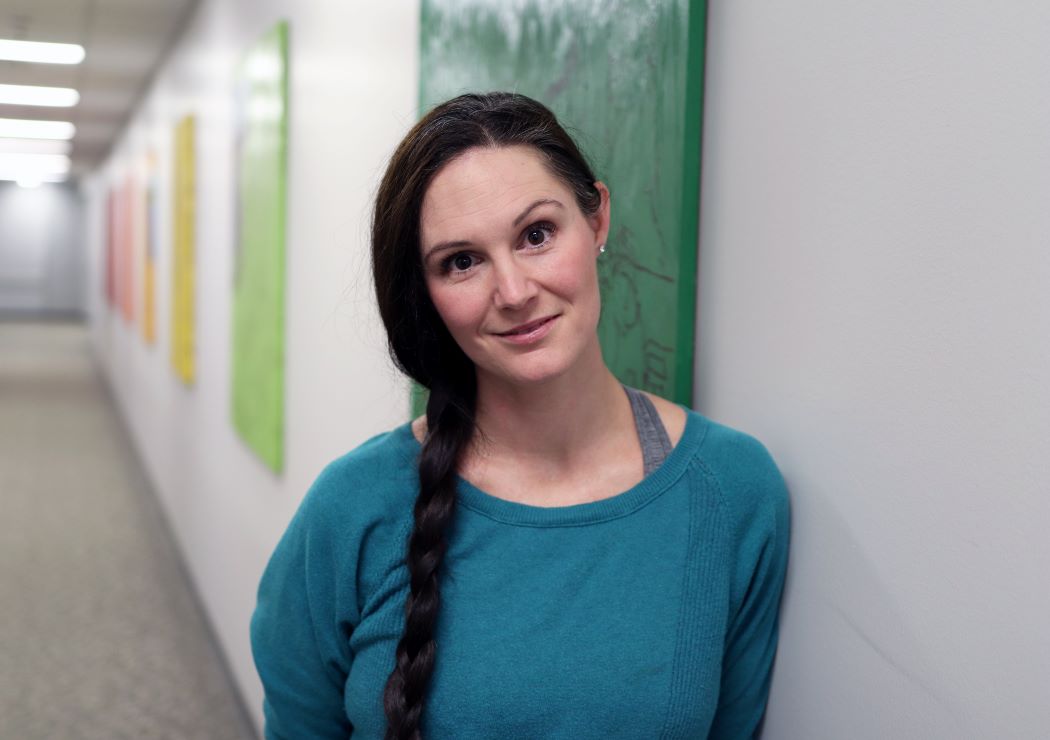
Power, privilege and systemic oppression play roles in the collection of health data, says data equity specialist Dr. Laura Bowler.
Data equity specialist aims for justice in health research
Scientists tend to assume that the information stored in health-care databases – such as records of medical diagnoses and prescriptions – paints a complete, factual picture.
But the more you examine health data through a lens of equity, inclusion and justice, the more you recognize its biases and exclusions, says Dr. Laura Bowler.
Bowler, who joined UM in 2023, is the first person to hold the position of data equity specialist at the Manitoba Centre for Health Policy (MCHP), a research unit in the Max Rady College of Medicine.
“It’s important to understand that this isn’t objective data,” says Bowler, noting that power, privilege and systemic oppression play roles in who is counted and how data can be skewed.
Manitobans counted in health data as having a certain disease, for example, may be those who were fortunate enough to have a family doctor; felt safe enough in the medical system to fully disclose their symptoms; could communicate well enough to advocate for themselves; and were privileged enough to have time and resources to undergo repeated tests or attend appointments with specialists.
“When we look at mental health, for example, a lot of data never gets captured. Whole cohorts of people aren’t there. The data represents a privileged subset.”
The Indigenous population in particular has been unjustly under-counted in some categories and over-counted in others, Bowler says.
A further injustice is that health research about First Nations, Métis and Inuit people has often been controlled by academics and not shared with those communities. MCHP respects Indigenous data sovereignty, Bowler says, and is committed to partnering with communities to ensure that research benefits them.
The way health data is reported – often reinforcing a negative picture of a certain group – can cause harm to people who are already stigmatized, Bowler notes.
She gives the example of a person who uses drugs feeling, “I’m overlooked and forgotten in every way, except being included as a negative statistic in your study.”
MCHP curates and maintains the Manitoba Population Research Data Repository on behalf of the province. It’s the richest data mine in Canada for population-based research.
The data, known by researchers as administrative data, is collected not only from the health-care system, but from the education, social service and justice systems every time a Manitoban comes into contact with these systems. Although the data is de-identified (anonymous), numeric codes allow each individual to be tracked across sectors and over time.
When researchers design studies using this data, Bowler says, they should be aware that it was collected by human beings who may have made assumptions or failed to ask inclusive questions.
“My role at MCHP is to ensure that the historical, systemic oppression and biases that exist in our institutions – and therefore in our administrative data – are acknowledged and reflected in how we approach population research,” she says.
“This is a whole new way of working for a lot of researchers. So we’re here to provide support and to help them critically analyze the source of the data.”
Bowler, who also uses the last name Bee, has taken a journey of “unlearning” many of her own assumptions since she started out as a laboratory scientist. Raised in rural Manitoba, she earned a bachelor of science at the University of Winnipeg, then completed a PhD in medical microbiology at UM in 2016.
But roughly 10 years ago, she started to get interested in social justice and the harms people experience in the health-care system. In 2022, she completed a master’s in public health from the University of Victoria, specializing in social policy and health equity.
She now belongs to the inclusion, diversity, equity and accessibility (IDEA) team of the Health Data Research Network of Canada, a network of data centres similar to MCHP.
There’s a positive shift happening in data research toward identifying protective factors that help people to avoid negative outcomes, rather than always quantifying risk factors or deficits, Bowler says.
She is working on toolkits that will guide researchers in using an equity lens to evaluate data stored in repositories, and in designing research questions and projects that are “centred in equity.”






